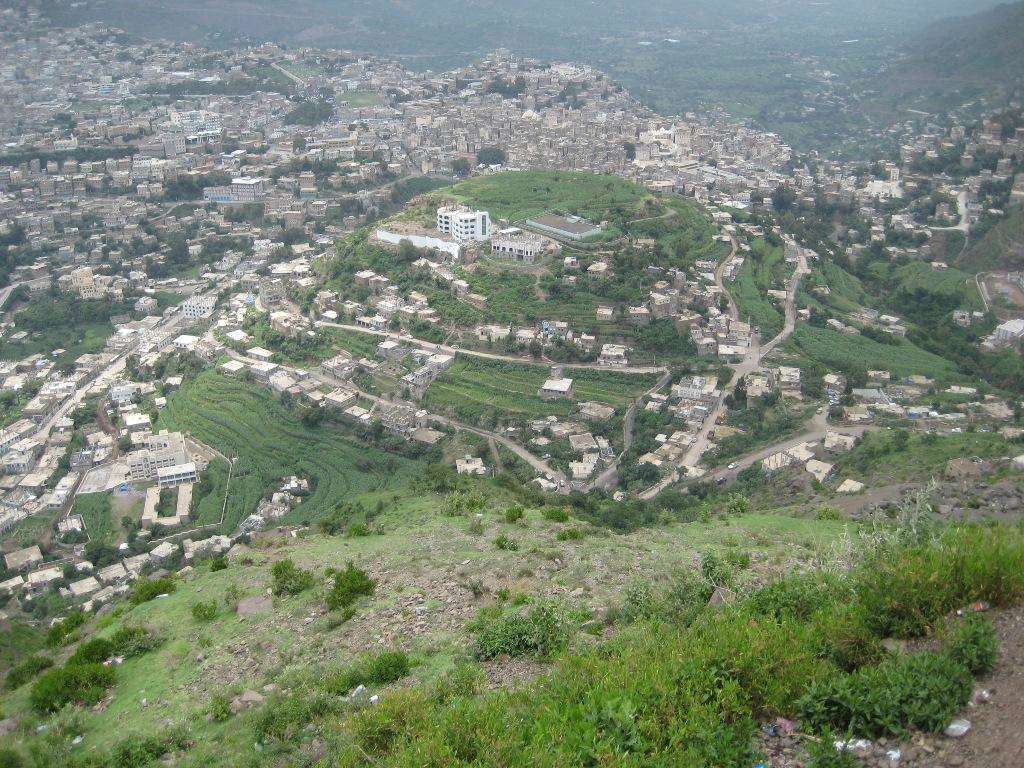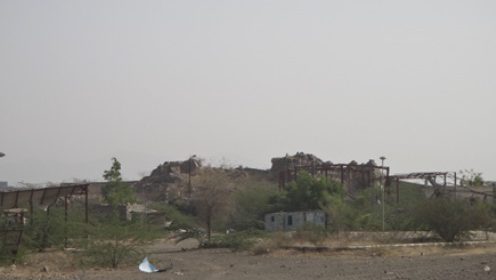The Ibb Water Supply Miracle of Resilience
By Frank Van Steenbergen
July 2018
It achieves nearly full recovery on customer bills, has in the last three years been able to expand the volume of water produced and has increased customer connections for water supply and sanitation with 21% and 17% respectively and all of this whilst the country is in war. This is the recent history of the Ibb Water Supply and Sanitation Local Company(IWSLC) in a city with an official population of 383,113 in South West Yemen. The Ibb Water Supply and Sanitation Local Company presents a remarkable case of resilience, because of all of this was achieved during a time of unprecedented war, imposed on the country since 2014.
Ibb has been spared the worst of fighting, but the war nevertheless made itself felt in many unusually challenging circumstances: it eroded customers ability to pay, no spare parts, suspended power supplies, fluctuating fuel prices and a heavy influx of internally displaced persons. In spite of this, the IWSLC increased rather than decreased its level of services. Its performance on key performance indicators is remarkable, especially in water supply:
- 80% of this population was connected to the public water supply system – a total of 29,961 connections, up from 70% in 2014
- Remarkably IWSLC, during the crisis period, has managed to increase its customer base from 24,775 connections in 2014, an increase of 21%.
- The nominal water production capacity increased significantly, from 19,869 m3/day of average nominal water production capacity in 2014 to 21,340 m3/day in 2018. The total volume of water produced in 2017 was 5,998,931 m3[1], an increase of 12% over the volume produced in 2015. Average water consumption was 40 litres per capita per day in 2017
This was also reflected in convincing management performance:
- With the consent of the Board, IWSLC has taken some bold steps to adjusting service tariffs during the crisis period. First, when the government stopped subsidies for fuel derivatives in late 2014, an adjustment to the water tariff was agreed to overcome the impact of this cost increase on IWSLC’s financial burden. It was decided to gradually increase the tariff by 20% every month up to a maximum of 45%.
- IWSLC employs a total staff of 240 people, a number that has been constant since 2015 – part of the freeze on new recruitment, one of several austerity measures taken during the war
- In the last four years, the bill collection rate was 87% on average, varying between 78% (in 2017) and 101% in 2016 (including arrears of previous years). For domestic and commercial users, the collection rate has even been 100% during the entire crisis period. The average collection rate has been weighed down by low collections from governmental organizations (45%) and the non-payment of a special mark-up.
- According to IWSLC, 100% of customers have water meters installed and all of them are functional.
- NRW (non revenue water) stands at has fluctuated around 28%
- As a result, without depreciation, IWSLC was able to cover its operating expenses and have savings of about 219 million YR in 2015, 46 million YR in 2016 and 231 million YR in 2017, if all bills to customers would be paid

In sanitation the performance has been less and also Ibb has not been spared the high incidence of cholera. Just as IWSLC has been able to extend the coverage of its water supply services, it has done the same for its sanitation and sewerage services. The number of connections increased with 17% but this was on an already overstretched urban sanitation system. The wastewater treatment plant became more and more of a bottleneck as it is extremely overloaded. The design capacity is 3,200 m3/day but the inflow is estimated at 11,322 m3/day or even more.
There are several explanations that explain the ability of the IWSLC to expand coverage in the years of conflict. First being spared the worst of the war damage, the infrastructure of IWSLC was robust enough to serve to an ever growing customer base, in spite of the lack of replacement or major investment. This physical asset base was matched with the intangible assets of IWSLC in the shape of transparent procedures: for instance in the way water is delivered and billed, in the way connections are made and customer complaints is dealt with. This has contributed to building customers’ confidence.
A second reason underlying the IWSLC remarkable performance is its financial autonomy. Its ability to collect its own revenues and adjust the prices for its services has allowed IWSLC to generate sufficient revenue to pay for all essential running costs and ensure timely payment of staff, even in hard times. This boosted staff morale. Had the IWSLC been dependent on public finance, it would have been much more exposed to the financial trouble that came with the Yemen war, such as the cessation of government payments.
These two point combined created a high spirit – for customers it is the only route to affordable and relatively reliable water supplies; for staff it was the only way to secure a job and income. The war interestingly galvanized IWSLC’s performance. In short the customers needed the IWLSC for its affordable water services, and the staff needed the IWSLC for their jobs. There was simply no alternative than this beneficial mutual dependence.
A third reason was that IWSLC managed to avoid political interference that could have hampered its smooth response to the severe crisis. IWSLC retained its board and senior management – taking some difficult decisions on raising and changing tariffs and undertaking austerity measures, including need-based employment and recovery of all operational expenses.
Fourth, well-targeted support from humanitarian agencies helped to strengthen IWSLC and helped it to continue functioning by resolving vital constraints, such as the exposure to high fuel prices or the provision of necessary equipment. In other cities, parallel emergency water supply systems were created under humanitarian aid.
The remarkable performance during war time is also a story of trust and necessity: for customers the IWSLC was the secure and affordable source of water that should never be able to fail. For staff This was very much facilitated by continuity of management and invisible social infrastructure: high staff motivation and practical transparent procedures.
The Ibb water security case brings two generic lessons. What the Ibb case shows is the importance of public utilities keeping functioning during crisis. With crisis emphasis is often on emergency aid or post-disaster recovery, but there is a third priority of ensuring vital services keep Continued services by water utilities in a time of severe crisis is essential to reduce civilian casualties. It is hence important in the repertoire of conflict measures to not only focus on relief and rehabilitation but also to find ways to support utilities in providing their lifelines services during crisis, be it hospitals, energy providers or water utilities.
The second lesson concerns the importance of creating resilient organizations. There were several elements that made IWSLC a showpiece of resilience: financial autonomy, robust infrastructure, sufficient spare parts and fuel reserves; strong systems for billing, customer management and complaint handling and a relative safe distance from political interference through multi-stakeholder board and strict rules.
Testimony to the gentle people of Yemen….
[1] IWSLC keeps regular records on water production, consumption and losses. Twenty-seven water meters are installed at the wells and the reservoir.



